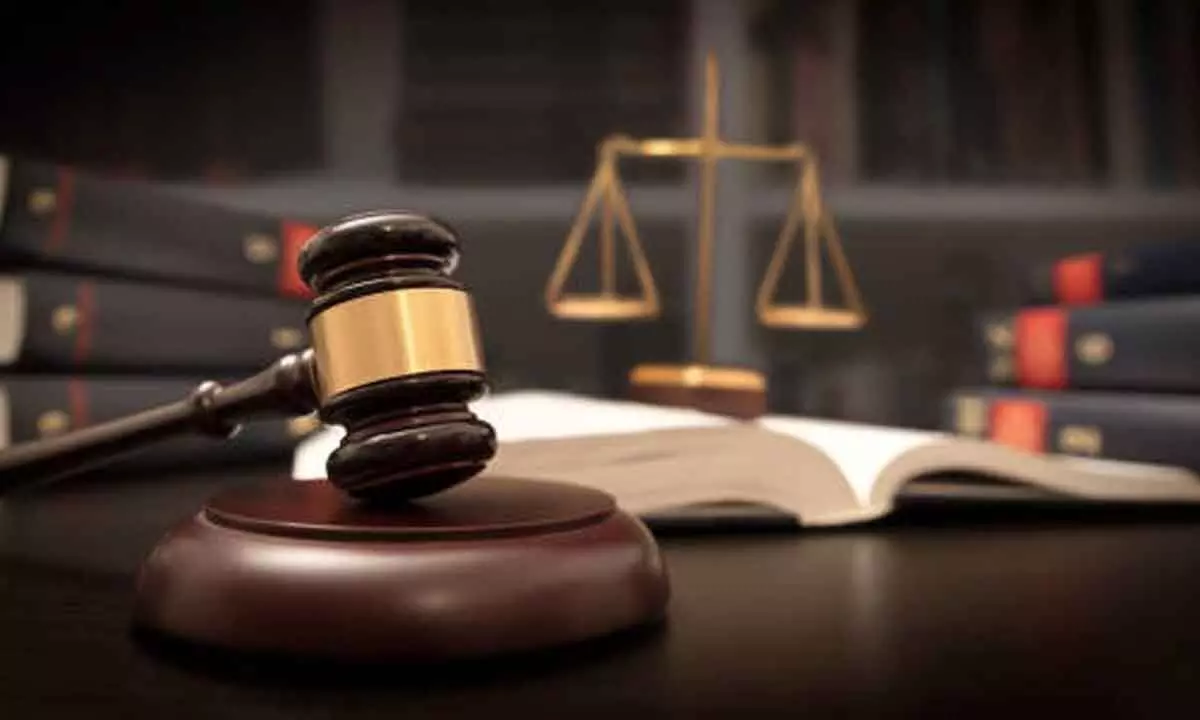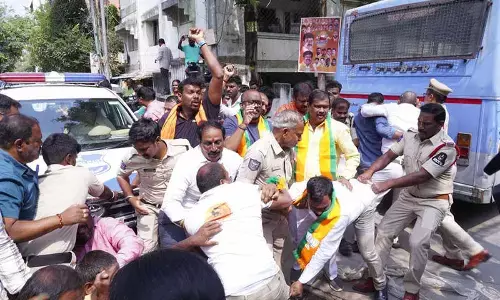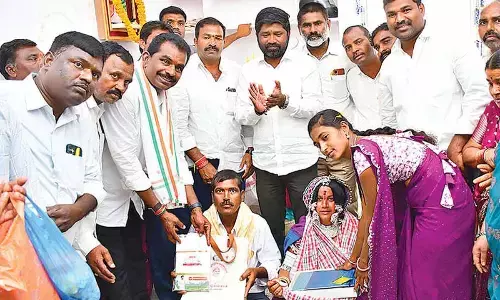Let Justice Be Gender-Neutral!

The pity with our forward looking and modern thinkers is that they want to go an extra mile in all their perceived notions which also includes non-existent reservation for women in judiciary.
The pity with our forward looking and modern thinkers is that they want to go an extra mile in all their perceived notions which also includes non-existent reservation for women in judiciary. Like the stormy 'Me Too' campaign which often turned out either hoax or a weapon of women's weapon of revenge, it has become fashionable to talk about providing reservations in judiciary for women at all levels.
Ironically, the Constitution of India does not envisage any kind of reservation based on the gender of a person. It only provides for the downtrodden and under privileged castes such as SCs and STs. Nowhere does it mention about providing reservations either in Assemblies, Parliament or Judiciary for women. In this way, the very thought of providing reservation for women particularly in judiciary is laughable because the dispensation of justice at all levels basically requires besides deep legal knowledge, a fair understanding of socio-economic conditions prevailing in the society and a humane touch to the problems of an individual or the society at large. Certainly, these qualities for a judgeship cannot be the sole preserve of either man or woman.
However, if the Parliament so feels, it is free to enact specific laws providing for the woman-centric reservations in any walk of life including the judiciary. But such laws will be subject to the judicial review by the higher courts. The higher courts will face a dilemma if a review against a law providing for the reservation of any kind, either for women, SC/ST/physically disabled is introduced that would clearly "discriminate" between one citizen among the other in the matter of public employment. Still, such special enactments could pass the test of judicial scrutiny on the principle of 'fair and reasonable discrimination.'
Further, in no other country of the world the judges are appointed on the basis of their gender. India need not be over - enthusiastic about the women's employment in judiciary by providing a backdoor entry for women in the name of reservation. The merit and other qualities cited supra hereinabove, alone should be given due consideration whole selecting the judges at any level.
There is also another danger in appointing the judges on the basis of reservation ignoring better candidates. The danger is that such judges are bound to do favour to the class or group they hail from as quid pro quo.
Needless to say, that our country has been even without following the concept of gender-based reservations, lucky to have outstanding women judges in the apex court, High Courts and Lower Court. To name a few, Justices M Fatima Beevi, Ranjana Desai, Sujata Manohar, Ruma Pal, Gyan Sudha Misra, Indu Malhotra, Indira Banerjee, R Banumathi, Bela Trivedi and Hima Kholi in the Supreme Court and many other legal luminaries in High Courts and Lower Courts have proved their capabilities as outstanding jurists without leaning on their gender.
It is true that an of opportunity must be created by the governments of the day enabling the weaker sections and women to acquire quality education; but once this is done, in the matter of employment and promotions no reservations need be provided. This is a simple fact vouchsafed by the Apex court which should not be lost sight by the policy makers in order to provide a level- playing field for all the job aspirants at all levels. If this does not happen for any reasons whatsoever, it would create heartburns and a feeling of discrimination among the aspiring candidates. If we closely look at the prevailing situation, this lopsided policy in the matter of appointments is mainly responsible for the brain- drain to the advantage of other countries. Surely, we cannot keep our eyes closed from this crass reality.
SC ISSUES GUIDELINES ON SECTION 319 OF CR.PC
In a far-reaching verdict the apex court on December 5 issued elaborate guidelines regarding the exercise of powers under section 319 of the Cr.PC for summoning additional accused during trial.
A five Judges Constitution bench of the Supreme Court in a case entitled, Sukhpal Singh Khaira Vs State of Punjab observed that the power under Section 319 of Cr.PC should be exercised before the pronouncement of the order of sentence where there is judgment of conviction or in case of acquittal before the order of acquittal is pronounced. In other words, the summoning order has to precede the conclusion of trial.
The court also held inter-alia that in case the trial court decides to hold a separate trial of the summoned accused, then it may decide the main case by pronouncing the conviction and sentence or acquittal whichever the case may be and then proceed afresh against the summoned accused.
The constitution bench was headed by Justice S Abdul Nazeer, Justice BR Gavai, Justice A S Bopanna, Justice V Ramasubramanian and Justice B Nagaratna.
TWO WOMAN POLICE OFFICERS FINED Rs 5 LAKH
The additional district and session's Judge K.M Radhakrishna of the Special Court in Mangalore fined two woman police sub-inspectors namely, Rosamma and Revathi for committing "the blunders in escaping the real offender and substituting in his place an innocent person" the court observed that these two police officers committed the impropriety to the position they are holding while discharging their duties and added 'indeed, they have put an unconcerned person to be behind bars for no sin he has committed'.
Hope the entire police force of the country would learn a lesson from this exemplary example and mend its ways while dealing with the public.
SC JUDGE HIMA KHOLI CALLS FOR PRO BONO SERVICE BY LAWYERS
Justice Hima Kholi of Supreme Court while addressing a congregation of advocates, law teachers and jurists at New Delhi recently exhorted the legal fraternity and the practising lawyers in particular to engage in pro bono work as part of their social obligation towards the less privileged class of people. She also said that while officially designating the senior advocates of a court the pro bono work done by the aspiring advocacies for Seniorship will also be counted as an important factor.
The lawyers' day is organised every year by the Bar Association of India (BAI) to commemorate the birth anniversary of India's first President, Dr. Rajendra Prasad. The annual event also offers an opportunity to all the stake holders in judiciary to interact with each other. On this occasion, several prominent persons from the legal fraternity were awarded for their achievements.
BAI's President Prashant Kumar informed that BAI, the oldest federation of legal fraternity in the country has been granted the distinction of being a representative body of lawyers by the United Nations recently. Dr. Anandita Pujari, General Secretary informed that a new building with modern amenities will be inaugurated shortly to house the offices of BAI as also the International alternative Disputes Resolution body, which will be the first of its kind in the country.










